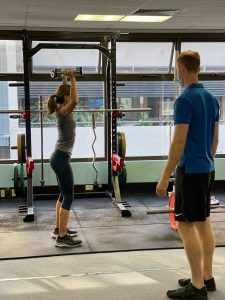Mental health crisis in young people: How can exercise help?
Mental health problems are on the rise and are developing at very young ages.
Longevity Exercise Physiology Drummoyne, Edgecliff, Marrickville, Bella Vista, Randwick, Pymble, Balmain and Neutral Bay discuss the occurrence of mental health problems in youth and why physical activity is such an important tool in the prevention and management of mental illness.
“Over 75% of mental health problems occur before the age of 25.”
(Beyond blue, 2022)
Even more alarming, suicide is the leading cause of death for people aged 5-17 years in Australia. The fact that mental health conditions develop predominantly from adolescence to mid-20’s makes the early years a critical time for intervention. Focussing on meeting the physical activity guidelines is a crucial way youth can prevent mental illnesses from developing.

According to the Australian Institute of Health and Welfare and Australian Bureau of Statistics, 70% of youth (2 to 17 years old) do not meet the physical activity guidelines. The most common barriers for 18-24-year old’s participating in physical activity is not enough time, too many other commitments, poor health or injury or too lazy.
What are the Physical Activity Guidelines are for young people (5-17 years)?
It is advised that children and young people do at least 60 minutes each day of moderate to vigorous physical activity per day. The 60 minutes doesn’t have to be done all at once. Several shorter bouts throughout the day are just as beneficial.
“As part of the 60 minutes of daily activity, it is recommended that on at least 3 days per week, children and young people include muscle and bone strengthening activities such as push-ups, climbing, bodyweight exercises or lifting weights.”
Exercise improves mental health in many ways, for example:
- Improve self-esteem and confidence
- Lowers anxiety and stress
- Improved mood
- Chance to have fun and socialise with friends and family
- Regulates sleep

Exercise Physiologists help children and young people in the prevention of mental health conditions as well as managing any existing conditions. Helping young people to enjoy and see the value of exercise from a young age is key. Exercise physiology is a fun, creative and safe environment where young people can be listened to and cared for all whilst helping them improve their strength, coordination, aerobic fitness and sport specific skills. Young people are less likely to seek professional help. This is why it’s so important friends and family help identify signs and symptoms and reach out to appropriate health professionals.
If your child is managing a mental health condition or not meeting the physical activity guidelines, reach out to Longevity Exercise Physiologists. You can speak to one of our friendly Exercise Physiologists at Edgecliff, Pymble, Marrickville, Randwick, Drummoyne, Balmain, Bella Vista or Neutral Bay on 1300 964 002 to enquire today.

Written By Courtney Maher
References:
Australia’s youth: physical activity. (2021, June 24th). Retrieved from Australian institute of health and welfare: https://www.aihw.gov.au/reports/children-youth/physical-activity
Beyond Blue. (2022). Statistics. Retrieved from Beyond Blue: https://www.beyondblue.org.au/media/statistics
Physical activity guidelines. (2021, May 10th). For children and young people (5 to 17 years). Retrieved from Australian Government Department of Health: https://www.health.gov.au/health-topics/physical-activity-and-exercise/physical-activity-and-exercise-guidelines-for-all-australians/for-children-and-young-people-5-to-17-years
